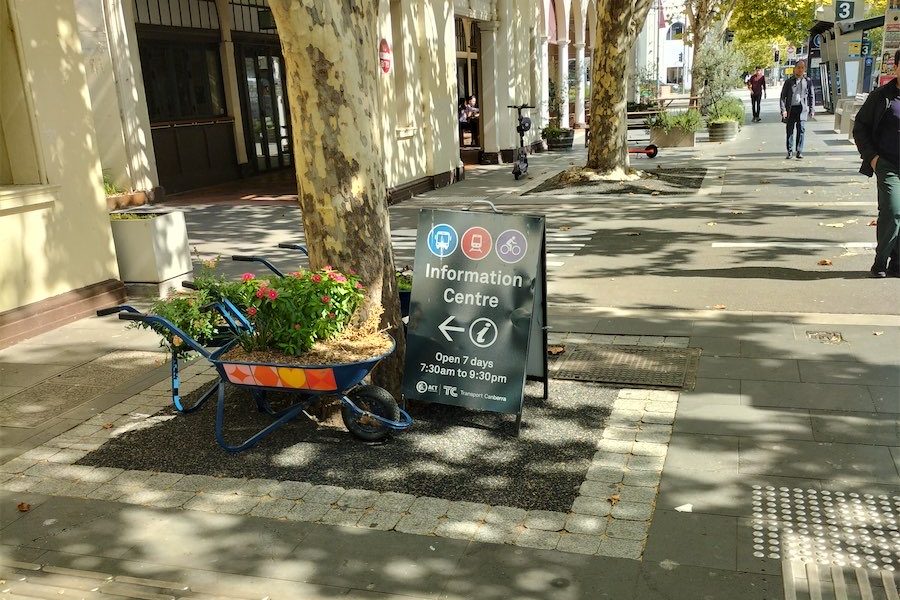
“Jurors spend six hours a day in the courtroom. The other 18 they’re at the mercy not just of their own phone fingers, but the news, views, rumours and scandal that everyone around them is keen to share,” writes legal columnist HUGH SELBY.
IN mid 2022, an article in “The Australian” newspaper called for Lisa Wilkinson to be prosecuted for her remarks made at the Logies awards in support of Brittany Higgins.

The ACT Criminal Code includes this offence: to intentionally or recklessly publish something that could cause a miscarriage of justice in a legal proceeding (section 714).
The article quoted from then recent remarks attributed to our chief justice: “The implicit premise of (Lisa Wilkinson’s speech) is to celebrate the truthfulness of the story she exposed.
“What concerns me the most… is that the distinction between an allegation and a finding of guilt has been completely obliterated”.
The “miscarriage of justice” is the message to jurors, that they should believe Ms Higgins and convict Mr Lehrmann.
That message meant that Mr Lehrmann could not get a fair trial in front of jurors, one or more of whom could be so swayed by the reporting of the speech that their ability to decide the case on the evidence they heard and saw in the courtroom would be crushed.
The trial was delayed in the hope that the passage of time would diminish the influence of Wilkinson’s remarks. It is no more than “hope”, because there are no tests to show whether the remarks are forgotten, strongly remembered, or anything in between.
As a precedent, but with a focus upon support for the accused rather than the complainant, the article referred to how, in December 1986, the NSW Court of Appeal, comprising the chief justice and four judges of appeal, fined NSW Premier Neville Wran for publicly professing his belief in the innocence of Justice Lionel Murphy before Murphy’s second trial. They fined the news media that reported Mr Wran’s remark a lot more. (DPP v Wran, (1987) 7 NSWLR 616, (1987) 86 FLR 92)
One year on from “The Australian” article there has been no report that Wilkinson has been, or will be, charged.
That may reflect an assessment that it would be difficult to prove either an intention or recklessness by Wilkinson, given the contact between her and the ACT Office of the Director of Public Prosecutions prior to her giving the speech. Her version of that contact can be found in her statement to the ACT Criminal Justice Inquiry (the Sofronoff Inquiry).
Within this last week we have been treated to an illustration of how competent criminal law specialists can hold incompatible views about whether to go to trial or not go to trial: the much publicised spat between the Victorian DPP and the special investigator into whether criminal proceedings will succeed against the key players in the use by Victoria Police of Nicola Gobbo, criminal defence lawyer, as an informant on her own clients.
More important than what Wilkinson said is solving the problem identified by the chief justice.
When Wran made his remark in the mid ’80s, our sources of news were newspapers, radio and free-to-air TV.
Today’s news and information is more crowded, more diverse, more quickly accessed, more transient and more superficial.
Moreover, because of clever programming, any online reader can be targeted with not one, but many articles from different sources about a topic – such as Higgins or Bruce Lehrmann – in which the reader’s search history shows an interest.
Following the well-trodden judicial path, the chief justice instructed last year’s jury not to engage with information outside of what they heard and saw in the courtroom. She repeated that instruction many, many times.
It made no difference, as one of them was caught out, leaving a printed version of online material in the jury room.
Again, a well-trodden path was followed, and the deadlocked jury was discharged.
That path and the blinkers (that a judicial instruction is stronger than uncontrollable inquisitiveness), once thought sufficient for a safe transit to a jury verdict, are no longer fit for purpose.
How few (not many!) minutes is it since you, your partner, your colleague, your friend, your child, your grandchild looked down at their phone screen? It’s compulsive, addictive behaviour.
Finger wagging and stern words are useless. Every parent, every teacher, every coach knows it. Judges need to know it, too.
Jurors spend up to six hours a day in the courtroom. The other 18 hours they are at the mercy not just of their own phone fingers, but the news, views, rumours and scandal that everyone around them is keen to share, even keener because they are a juror.
This is a problem for our criminal justice system, and the occasional defamation trial with a jury, that needs a fresh approach.
Admit that jurors bring many untested preconceptions into the courtroom. Have our trial judges engage with them to first bring those out and then discuss how to quarantine them.
In trials that attract public interest such judge and juror engagement will be every day.
It’s not hard. Every good judge does it to themselves, at every hearing, every day.
Former barrister Hugh Selby’s free podcasts on “Witness Essentials” and “Advocacy in court: preparation and performance” can be heard on the best known podcast sites.
Who can be trusted?
In a world of spin and confusion, there’s never been a more important time to support independent journalism in Canberra.
If you trust our work online and want to enforce the power of independent voices, I invite you to make a small contribution.
Every dollar of support is invested back into our journalism to help keep citynews.com.au strong and free.
Thank you,
Ian Meikle, editor





Leave a Reply